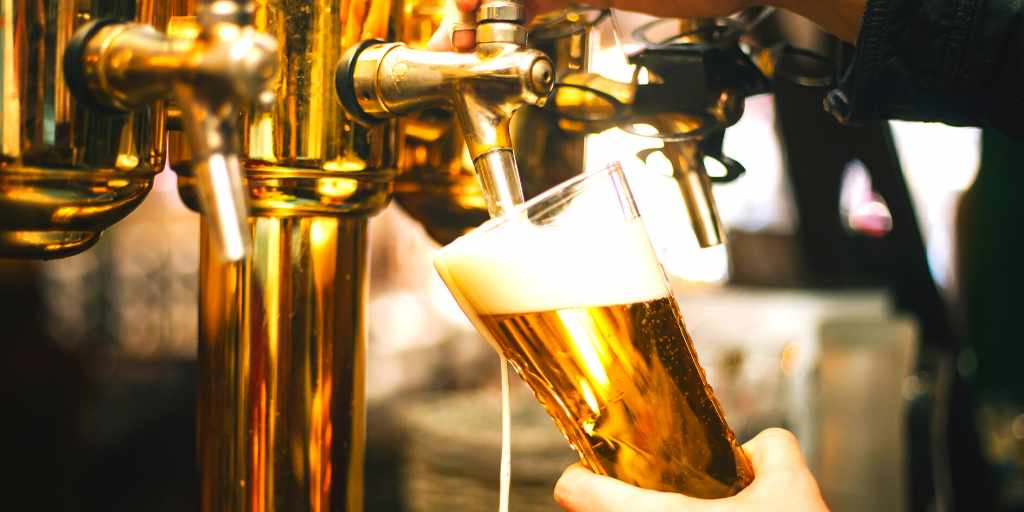Bartending is a craft that blends the art of mixology with the responsibility of ensuring that patrons enjoy alcoholic beverages safely. In Vermont, like many other states, bartenders must adhere to specific regulations and hold a Vermont bartending license.
This article will take you through Vermont’s bartending license requirements, the necessity of responsible alcohol service, and the resources available to those pursuing a career in this industry.
Key Takeaways
- Bartenders in Vermont must hold a state-approved bartending license for legal alcohol service.
- The Vermont Department of Liquor and Lottery, Division of Liquor Control, oversees liquor regulations in the state.
- Vermont ASAP Certification is a critical component of responsible alcohol service, and it must be renewed periodically.
- Compliance with Vermont’s alcohol server training requirements is essential to avoid legal penalties and promote safe alcohol service practices.
Does Vermont Require a Bartending License?
Yes, in Vermont, you need a bartending license to serve alcohol as a bartender legally. The state mandates that individuals complete a state-approved training course in responsible alcohol service to obtain this license, which ensures that bartenders are equipped to serve alcohol safely and in compliance with state regulations. (source)
You can obtain responsible server training from 360Training.
Bartending is more than just shaking cocktails; it involves a commitment to responsible alcohol service. In Vermont, bartenders must obtain a state-approved bartending license to serve alcohol legally. But there’s often confusion regarding whether you need a statewide or municipal license.
Municipal requirements may vary from one town or city to another, but the Vermont Department of Liquor and Lottery, Division of Liquor Control, oversees statewide regulations. To ensure compliance, it’s essential to contact the Division of Liquor Control Telephone to determine the specific licensing requirements in your area.
Restaurant Jobs That Require a Bartender’s License
Before starting a restaurant job, Vermont requires all employees involved in the sale or service of alcohol to complete training before they start working as a server or bartender. Training must be approved by the Vermont Department of Liquor Control (DLC)
The Vermont Department of Liquor and Lottery, Division of Liquor Control
The Vermont Department of Liquor and Lottery, Division of Liquor Control, plays a central role in overseeing the state’s liquor regulations. This regulatory body ensures that legal alcohol sales and services follow state law. It’s essential to understand the Division’s guidelines and regulations, which can be found on their official website.
How Long Does Vermont ASAP Certification Last?
The Vermont ASAP Certification expires two years after the issue date. After that, you’ll need to complete your alcohol seller course again.
The Alcohol Server Awareness Program (ASAP) certification is a fundamental component of bartending licensing in Vermont.
Why Should I Take Vermont Alcohol Server Training?
Taking Vermont alcohol server training is not just a legal requirement; it also promotes responsible alcohol service and customer safety. As a certified alcohol seller, you’ll be better prepared to handle challenging situations and minimize alcohol-related issues in your establishment. Completing state-approved training demonstrates your commitment to safe and responsible service.
Strategies and Skills for Students Intervening in Alcohol-Related Situations
Bartending is not just about mixing drinks; it’s about managing the overall alcohol service experience. Vermont bartenders are trained to handle alcohol-related issues and intervene when necessary to ensure the safety of patrons. Some of the key skills include recognizing signs of overconsumption, diffusing confrontations, and implementing responsible service strategies.
Conclusion
In conclusion, bartending in Vermont is more than just pouring drinks—it’s about responsible alcohol service and compliance with state regulations. Understanding the Vermont bartending license requirements, the role of the Vermont Department of Liquor and Lottery, Division of Liquor Control, and the significance of Vermont ASAP Certification is crucial for anyone seeking to work in this industry.
If you’re interested in bartending in other American states, we’ve written an article about bartending requirements across America here.

Frequently Asked Questions (FAQ)
Is a Vermont bartending license required for all bartenders?
Yes, to serve alcoholic beverages legally in Vermont, a state-approved bartending license is required.
What is the Vermont ASAP Certification, and how long is it valid?
The Vermont ASAP Certification is an Alcohol Server Awareness Program certification that currently expires two years from the issue date.
Do all employees in Vermont involved in serving alcohol need to complete training?
Yes, Vermont law mandates alcohol server awareness training for all employees involved in serving alcohol, including bartenders, servers, and liquor store employees.
Where can I enrol in state-approved training for a Vermont bartending license?
You can enrol in state-approved training through bartending schools, online courses, seminars, and other resources offered by authorized establishments. You can find a list here.
How do I get a bartending license in Vermont?
To obtain a bartending license in Vermont, you must complete a state-approved training course in responsible alcohol service. These courses are available through bartending schools, online seminars, and other authorized establishments. After completing the training, you can apply for your license.
What is required for a store to deliver alcohol to a Vermont resident?
Stores looking to deliver alcohol to Vermont residents must obtain the necessary licensing and adhere to Vermont’s alcohol delivery regulations. Specific requirements may vary, so it’s recommended to consult the Vermont Department of Liquor and Lottery for detailed guidance.
How old must you be to bartend and sell alcohol in Vermont?
Does Vermont have state liquor stores?
No, Starting in 1996, the state transitioned to an agency system where privately-owned retail locations, known as agency stores, contract with the Department of Liquor Control to sell spirits on behalf of the state. These agency stores serve as the primary outlets for selling liquor in Vermont. (source)




